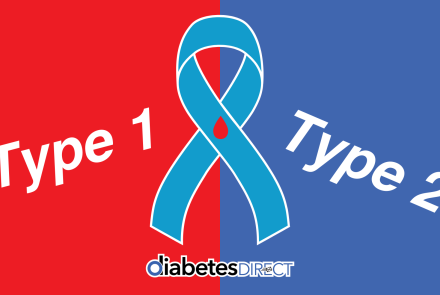Busted! Debunking 8 Diabetes Myths
With an increasing number of Americans affected by diabetes, 24 million have diabetes and an additional 57 million are at risk, it is important for everyone to understand diabetes fact from fiction.
In an effort to promote understanding during National Diabetes Awareness Month, Marc Wolf, registered pharmacist and founder and CEO of Diabetic Care Services, addresses some of the most common diabetes myths.
1. You can have a minor case of diabetes or borderline diabetes
Many people believe they only have a “borderline” case of diabetes, but there is absolutely no such thing as borderline diabetes; you either have diabetes or you do not. In fact, people who believe the borderline diabetes myth can be in serious danger of experiencing a number of diabetic complications.
It is possible to have a condition known as pre-diabetes, in which a person frequently experiences blood glucose levels that are above average but not high enough to be considered an indicator of diabetes. Pre-diabetes is a serious condition that must be monitored and managed constantly to avoid development of diabetes and other associated complications.

2. People with diabetes are all overweight
While type 1 diabetes has nothing to do with one’s weight, obesity can be a trigger for type 2 diabetes. Body fat can interfere with the body’s ability to use insulin, causing type 2 diabetes. However, this is not the only cause of type 2 diabetes, and not all people with type 2 diabetes are overweight. Family history and genetics also play a large role. To learn more about the risk factors of diabetes, check out these blogs from our Lifestyle section:
- What is Type 1 Diabetes? - Symptoms, Causes & Treatment
- What is Type 2 Diabetes? - Symptoms, Causes & Treatment
3. Sugar, chocolate, and other sweets are off-limits to people with diabetes
People with diabetes are able to eat sweets, chocolate, or other foods with sugar as part of a healthy and balanced meal plan. As long as patients can identify the carbohydrate values in the treats they are eating, they can adjust daily meal plans accordingly.
4. People with diabetes have to eat special food
People with diabetes do not need to eat “special” food. The same nutrition guidelines that apply to the general population also apply to diabetes; maintain the proper balance between carbohydrates, fat and protein, avoid saturated and trans fats, as well as foods high in sodium and sugar.
If you need some healthy food inspo, we've got you covered. Visit our Recipes section for a broad selection of tasty and nutritious meal ideas (we even have plant-based options!).
5. You can catch diabetes from someone else
Diabetes is not contagious. While scientists are not sure what causes diabetes, you cannot get the disease by coming in contact with someone who is diabetic. Even though this diabetes myth is untrue, keep in mind that family history and genetics can still play a roll.

6. Diabetes hinders a person’s ability to perform well at work or school
Absolutely not. Although diabetes is a long-term disease without a cure, it can be managed if treated properly, allowing someone living with diabetes to lead a full and active life.
However, people living with diabetes must plan ahead and take extra precautions when necessary. For example, taking food and medication with them on a long shopping trip or car ride, business meeting or to class and after school activities.
7. People with diabetes are more likely to catch a cold or other illness
People with diabetes are not more likely to get a cold or flu than the general population. However, if you have diabetes, catching a cold or flu can make your condition worse because the added stress of being ill causes blood sugars to rise.
8. Stress can cause type 2 diabetes
This diabetes myth is not true. Although stress is a leading factor in many illnesses, high levels of stress have not been clinically proven to directly cause diabetes. But large amounts of stress are not good for anyone, and stress can worsen the disease by triggering other medical conditions or complications.
We hope this article has helped dispel some misconceptions about diabetes. To learn more about how to lead a healthy lifestyle and achieve the best version of yourself, visit our Lifestyle section for more educational and inspirational blogs.
- Log in to post comments





